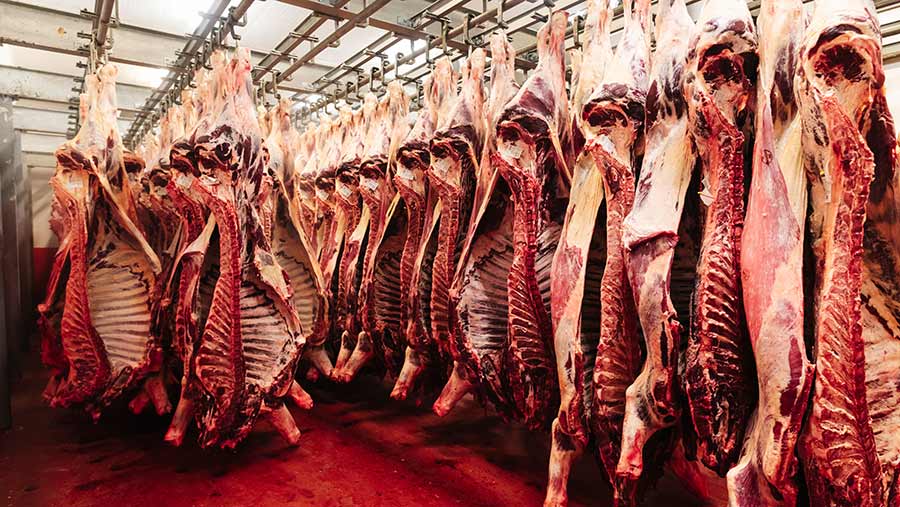Farmers to benefit as meat exports hit record levels
 © JacZia/Adobe Stock
© JacZia/Adobe Stock Earnings for the food and farming sector from exports of red meat reached record levels in 2022, new trade data has revealed, benefiting from both higher prices and increased extra tonnage sold.
New figures from HMRC reveal that red meat sales were up 22% in value terms to £1.7bn last year, with the volume traded around the world growing by 9% to 609,000t.
See also: British farmers advised to grasp export opportunities
Beef brought the biggest boost for the sector, with the value of shipments up by 46% to £640m, and volume up 8%, driven primarily by the recovery in trade with the EU, but with Japan and Canada also proving to be lucrative outlets.
Overseas pigmeat sales grew by 6% in volume and 10% in value to £623m, with China the biggest importer, taking 127,000t.
Lamb also enjoyed a 13% rise in sales by value to just over £500m, buoyed in part by the reopening of the US market – although 94% of the UK’s sheepmeat exports went to the EU.
AHDB international market development director Phil Hadley said the developments were hugely positive in the light of recent Brexit and Covid-19 challenges.
“I’m really enthused by the numbers because they demonstrate that our exports continue to move forward, both in volume and value terms. That has to be good news for the whole sector. From a farmer’s point of view, that extra value does trickle back.”
However, Mr Hadley added a word of caution. “Let’s be clear, there is a cost, and the rising costs of production and processing mean that, just because the numbers are up, the margins haven’t grown exponentially. It remains a challenging environment.”
Prospects
The export figures came as the AHDB published a new online-only Horizon report, looking at prospects for UK agri-food exports over the next 10 years.
While the EU is set to remain as the UK’s most valuable market, Asia and the Middle East are seen as the most promising areas for beef, lamb and dairy, with China also strong for pork.
AHDB senior analyst Amandeep Kaur Purewal said: “Although the UK is unlikely to become an exporter of bulk commodities in the near future, this should not hold us back from promoting UK produce across the world.”
Mr Hadley said the keys to success were first securing market access, then negotiating favourable terms of trade, then building commercial relationships by having a presence at trade shows and placing agri-food counsellors in key countries.
“Often we’re not the biggest supplier, and we’re equally not the lowest-cost producer. So we need decent access with very low or no tariffs for our product to be competitive,” he said.
